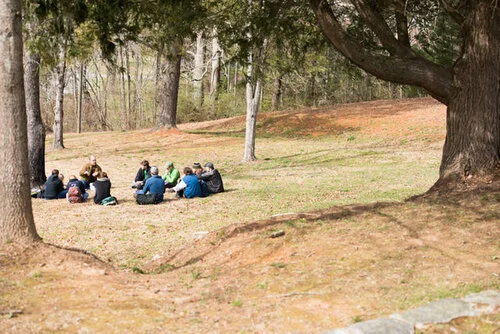2026 Faculty & Workshops
Victoria Chang
-
Victoria Chang is an award-winning poet whose work explores grief, identity, memory, and the complexity of language with remarkable emotional depth and formal invention. Her poetry is known for pushing boundaries while remaining intimate and accessible, earning her a reputation as one of the most distinctive and powerful voices in contemporary American literature.
Chang is the author of several acclaimed collections, including Obit, which won the Los Angeles Times Book Prize, the PEN Voelcker Award, and was a finalist for the National Book Critics Circle Award. Written in the form of newspaper obituaries, Obit reimagines the elegy, giving voice to personal loss and the quiet deaths of identity, relationships, and language. Her other works include The Trees Witness Everything, a collection composed in minimalist waka poems, and Barbie Chang, which investigates race, gender, and social exclusion with fierce clarity. Her latest book of poems, With My Back to the World (2024), received the Forward Prize for Best Collection of Poetry, was named a finalist for the Kingsley Tufts Poetry Award, and was named a Best Book of the Year by NPR
In addition to poetry, Chang writes lyric nonfiction. Her hybrid memoir Dear Memory: Letters on Writing, Silence, and Grief was widely praised for its innovative structure and emotional resonance.
A Guggenheim Fellow and former Poetry Editor of The New York Times Magazine, Chang also writes children's literature and is the Bourne Chair of Poetry at Georgia Tech, where she teaches.
-
This will be a generative writing lab where we will read poems together and then write poems together. We will begin from the place of play as a poetics, as a way against writer's block, and as a way to move out of our comfort zones. We will go from one set of poems and writing exercises to the next with some time at the end to share what we’ve written. Come to this workshop with a big imagination, an open mind, a laptop and/or a notebook, and be prepared to have fun as we experiment in new ways.
Leslie Jamison
-
Leslie Jamison is a gifted writer whose work explores the strengths and limits of our shared humanity. Her writing has been called at once “profound” and “intellectual” and then “poetic” and “philosophical.” She’s often compared to Joan Didion and Susan Sontag, the inheritor of a great American literary tradition.
Leslie’s collection of essays, The Empathy Exams, won the 2012 Graywolf Press Nonfiction Prize and was named one of the best books of the year by NPR, the New York Times, and Publishers Weekly. The Gin Closet, Leslie’s first book, was one of The San Francisco Chronicle’s best books of the year. In 2018, Leslie released The Recovering: Intoxication and Its Aftermath, a book that seamlessly blends memoir, cultural history, literary criticism, and reportage. The Recovering chronicles how we tell stories about addiction, as well as the larger history of the recovery movement. Leslie’s 2019 collection of essays, Make It Scream, Make It Burn, was met with high praise and critical acclaim. Entertainment Weekly writes, “With this brilliant new collection…Leslie Jamison affirms why she’s the essayist of the moment.” In 2024, she released her memoir, Splinters: Another Kind of Love Story, a fascinating and sometimes harrowing exploration of motherhood, art, and new love. Leslie also completed and published the novel Peggy in 2024, continuing the legacy of her friend and fellow author Rebecca Godfrey who passed away in 2022.
A graduate of Harvard College and the Iowa Writers’ Workshop, Leslie also graduated with her PhD from Yale University. She teaches at the Columbia University MFA program and mentors through the PEN Prison Writing Program. She has worked—for various stints, in various points—as a baker, an office temp, a juice barista, a medical actor, and an innkeeper. She currently lives in Brooklyn.
-
In this generative workshop, we’ll be thinking about how landscapes—built and wild, domestic and public, life-long and transient—offer fresh ways of looking at our most essential subjects: love, grief, transformation, inheritance, confession, loss. How do places shape us, illuminate us, infect us, astound us, wound us, orient and disorient us? How can writing toward places we’ve loved—or fled, or lost—clear new pathways into writing our own stories? We’ll examine how we write about places that are charged with emotion, landscapes remembered and conjured, places we’ve said goodbye to, places we’ve longed for, places we’ve carried around inside of us long after we left. We’ll be devoting particular attention to how places—in their tangible textures and sensory specificity—might challenge us to write more vigorously and precisely into the vast intangible realms of emotion, the childhood pantries and wet wormy soil and skittering dusk light of our earthly days. How can places become prompts and catalysts and fissures opening onto vast subterranean caverns of feeling? We’ll read personal narrative, travel writing, fiction, and lyrics. We'll write elegies and make maps; we'll think about memory palaces and the ecosystems we carry around inside of us; we’ll take risks with form and content; we’ll leave our days together with writing that feels like fresh paint still drying on the canvas: raw, real, urgent.
David Joy
-
A twelfth generation North Carolinian, David Joy grew up in the Piedmont along the Catawba River, moved away at eighteen, and has spent the last 22 years 100 miles west in the mountains of Jackson County. His work is place-driven and deeply rooted to Appalachia, and has been translated into six languages. In 2023, his debut novel was adapted to film starring Billy Bob Thornton and Robin Wright.
David Joy is a critically acclaimed author known for his raw, unflinching portrayals of life in rural Appalachia. With novels that pulse with tension, beauty, and heartbreak, Joy has established himself as one of the foremost voices in contemporary Southern literature. His works delve into the complexities of poverty, crime, family, and the human spirit, capturing both the grit and grace of a region too often misunderstood.
Joy is the author of five novels, including Those We Thought We Knew (winner of the 2023 Willie Morris Award and the 2023 Thomas Wolfe Prize), When These Mountains Burn (winner of the 2020 Dashiell Hammett Award), The Line That Held Us (winner of the 2018 Southern Book Prize), The Weight of This World, and Where All Light Tends to Go (Edgar finalist for Best First Novel). His stories and creative nonfiction have appeared in a number of publications, most recently Garden & Gun, The New York Times Magazine, and TIME. He is also the author of the memoir Growing Gills: A Fly Fisherman’s Journey and a coeditor of Gather at the River: Twenty-Five Authors on Fishing, a book he spearheaded to raise money for the CAST For Kids Foundation. Joy lives in Tuckasegee, North Carolina with his dog Edie Munster.
-
Eudora Welty once said that, "One place understood helps us understand all places better." What she meant is that a writer who captures the humanity of a particular place by extension illuminates the human condition as a universal. James Joyce shared that sentiment when he noted that, "If [he could] get to the heart of Dublin [he could] get to the heart of all cities of the world." Every place has a sound, a smell, a flavor, an ecology, a people so deeply rooted to that ground that they must claw themselves from the dirt to find their place on the page. In this course we will closely examine place as a governing principle of story, as the lens through which all things find focus.



















